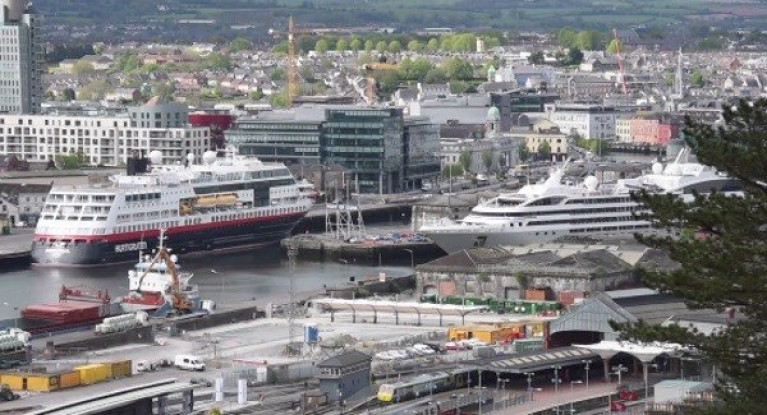Displaying items by tag: Cruise Arrivals
Cruise Ships Sail Ahead into Cork Harbour Despite Covid-19 Fears
Cork Harbour's lucrative cruise season will continue as planned, despite coronavirus fears, writes the Irish Examiner.
The Port of Cork said steps have been taken ahead of the arrival of the first cruise liner of the 2020 season.
The Saga Sapphire is due in Cobh on Friday morning with up to 752 passengers and a further 400 crew. It will arrive at the end of a coastal cruise of Ireland and the UK, having already docked in Liverpool and Dublin (yesterday to overnight in port Afloat adds) before setting off back to Dover.
There is just one other cruise liner due this month: the Marco Polo (also Cobh, Afloat confirms), which is scheduled to arrive on March 23. From April onwards, though, the numbers arriving will increase rapidly.
Currently, there are plans for a record 107 cruise liners to visit Cork (majority to Cobh) in the coming months. Passenger numbers were projected to reach 260,000.
For more on the coronavirus struck cruise ship Grand Princess in the US, as Afloat previously reported and a comment from the Port of Cork click here.
























































